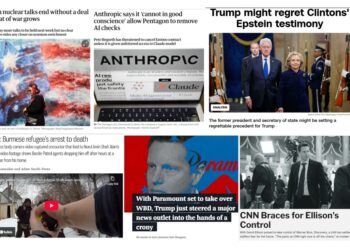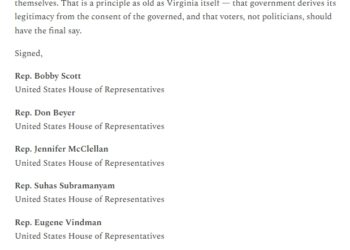( – promoted by lowkell)

{This piece ran as an op/ed in the Northern Virginia Daily on September 23, 2011.}
Recently we learned that the poverty rate in America has risen above 15 percent — the worst in almost two decades. Virginia’s numbers are not as bad, but they’re plenty bad enough and getting worse.
People are suffering. How should we feel about that suffering?
In many years of conducting radio conversations here in the Shenandoah Valley, I found that a lot of people are suspicious of the poor. They see the poor as lazy and unwilling to pull their own weight. Those who focus on that image of poverty are more likely to be hostile than compassionate.
(That cheering for the “Let ’em die” remark at the Republican presidential debate, regarding the hypothetical uninsured sick person, was a more extreme version of that attitude. With his irresponsible decisions, the thinking goes; he made his bed, so let him lie in it. Or die in it.)
For those who look to the Bible for moral wisdom, the more than 3,000 times the Bible emphasizes the importance of attending to the suffering of the poor and looking out for widows and orphans seems to be a clear message that compassion is the right attitude.
Sometimes the image of the poor person as lazy, as responsible for his own predicament, is accurate. But even in good times, that’s hardly the rule.
These are not good times. It is not laziness that explains why 23 percent of Virginia’s workers earned wages too low to support a family of four above the 2009 poverty threshold. It is not laziness that explains why the bottom 60 percent of American families are losing ground while only the segment making more than $100,000 a year is getting richer. And it is not laziness that accounts for the super-spike in the numbers of long-term unemployed — way off the charts of any time since the Great Depression.
It was the Great Depression that enabled America to become a more humane and compassionate society in terms of helping those in need. People were able to see more clearly “There but for the grace of God go I.” Those who were not cast down by the economic disaster saw that people “just like us,” people who just happened to have the misfortune of working for the wrong enterprise, were struggling.
Many picture the poor as consisting of school dropouts and racial minorities. Not “like us.” In Virginia, the college-educated are among those over-represented in the newly poor. More than half of Virginia’s poor are white.
Times like these test a society’s spirit. Can we recognize that we are all in this together? Can we deal compassionately with those upon whom these hard times have fallen the hardest? Will we demand that our government be innovative and imaginative in developing solutions to the problems our struggling economy cannot now solve, putting people back to work, helping ease the pain and insecurity of these hard times?
Or will we yell “sink or swim” to people who are drowning?
To learn more about Andy, please go to
You may also follow Andy on
And on

![[UPDATED with Official Announcement] Audio: VA Del. Dan Helmer Says He’s Running for Congress in the Newly Drawn VA07, Has “the endorsement of 40 [House of Delegates] colleagues”](https://bluevirginia.us/wp-content/uploads/2026/02/helmermontage.jpg)
















